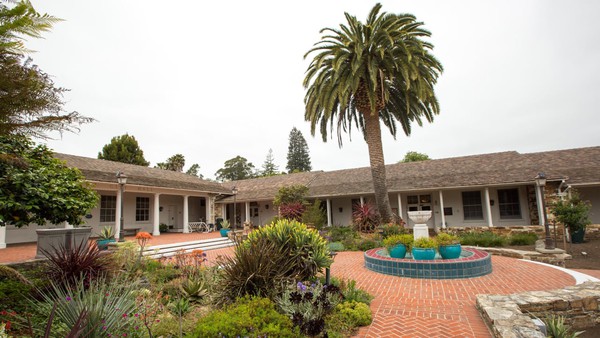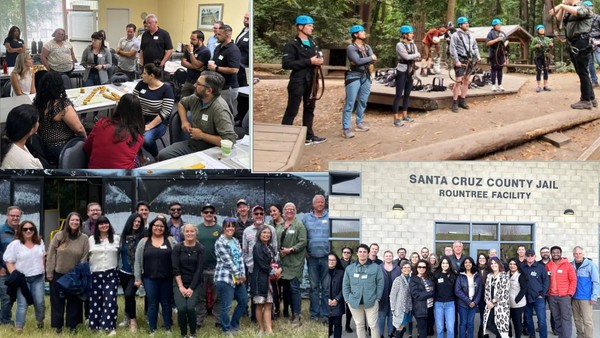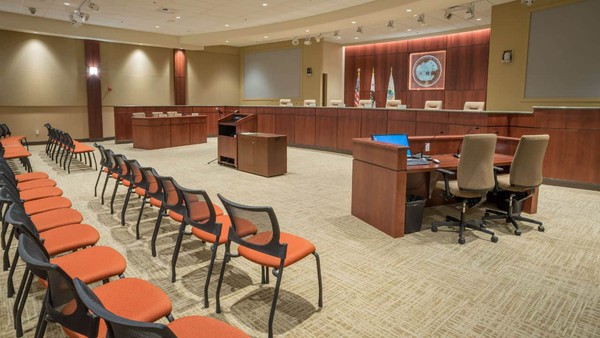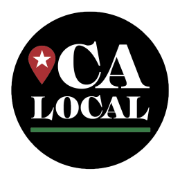The council chambers in Santa Cruz City Hall has been the scene of countless heated political battles, and at least one melee.
In November, 2021, more than 2,000 people gathered in the bucolic Silicon Valley suburb of Los Gatos for what was called the United Against Hate March. They did so in part because the town's mayor and elected council had been subjected to a slew of attacks in the wake of vaccination mandates and policies promoting diversity, equality and inclusion (DEI). Similar incidents had already happened during public meetings throughout the state and nation, and they have continued ever since. And last Jauary, my friend Fred Keeley, mayor of Santa Cruz, received a death threat following a contentions city council meeting during which protesters stormed the council dais and broke windows in the chambers.
Last month, the Los Gatos town council voted unanimously to cancel its November election because nobody filed to run against the incumbents for two seats that would have been in contention. We've noticed that the same thing has happened in multiple towns and cities throughout Northern California. In this week's edition of The Newsletter, Chris Neklason examines the trend and posits some reasons people might find running for a public office or advisory board—an admitedly serious conmmitment to civic duty—increasingly daunting.
But first, Chris talks with Ryan Coonerty, a former veteran Santa Cruz elected official and, not incidentally, co-host of the podcast "An Honorable Profession," which is about (you guessed it) elected public service.
The Business Community Steps Up
When we talk about how California works here at CALocal, we frequently point out that the civic infrastructure in most cities and towns is made up of a multitude of individuals beyond elected officials and public employees. They include, for instance, the employees and volunteers at nonprofit community groups. In every instance I know of, the local business community is also involved in the work of civic betterment.
One of the best examples of business leaders stepping up to nurture community involvement are local programs such as Leadership Santa Cruz—there are similar organzations in many counties throughout California and beyond, and they are generally founded by local Chambers of Commerce.
• Woodland Proceeds With Aquifer Water Storage Project
In their September 3 meeting, the Woodland City Council gave approval for city staff to apply for $2 million in U.S. Bureau of Reclamation funding to begin the Aquifer Storage and Recovery Well 31 Project to add capacity to the city water supply.
(09/05/2024) → Daily Democrat
• CA Homeless Count Is Up 8% From 2022
An exclusive CalMatters analysis of the latest California homeless count reveals some good news and bad news: Though the growth rate of homelessness appears to be slowing, the overall number of unhoused Californians increased from two years ago.
(09/10/2024) → CalMatters
• CA Rent Control Battle Goes to the Ballot
Amid a Southern California heat wave, about 300 advocates for rent control — with two 10-foot “greedy landlord” puppets — rallied Thursday in downtown Los Angeles, chanting: “The rent is too damn high!”
(09/06/2024) → CalMatters
• Are CA Gig Workers Getting Promised Pay and Benefits?
California voters passed Proposition 22 four years ago. The ballot initiative, backed by Uber, Lyft and other gig companies, promised the state’s more than 1 million gig workers new benefits, such as guaranteed minimum earnings, health care stipends, occupational accident insurance and accidental death insurance.
(09/04/2024) → CalMatters


 The council chambers in Santa Cruz City Hall has been the scene of countless heated political battles, and at least one melee.
The council chambers in Santa Cruz City Hall has been the scene of countless heated political battles, and at least one melee.











